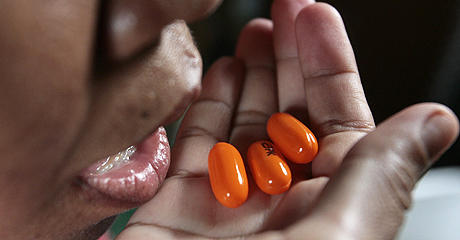
Towards the tail end of last month, a crucial meeting was convened by the Anti-Counterfeit Agency (ACA) to review the Anti-Counterfeiting Act of 2008 (the Act).
Many public health and HIV/AIDS stakeholders would recall that in April 2012 the High Court of Kenya declared the Act unconstitutional since it infringed on the constitutional right to health (see this blogger’s previous comments on this case here).
It should be noted also that in the past, national civil society organizations (CSOs) led by AIDS Law Project (ALP), have been making a series of inquiries to determine the extent to which the High Court decision was implemented. This review opportunity was therefore welcomed.
The purpose of the review meeting (as inferred from the invitation letter) was ‘discussions and exchange of views on recommendations that may further be incorporated.’ And, the objective of the review meeting was ‘improving and strengthening the Agency’s scope of operation within the stipulated mandate.’ In fact, the proposals on amendment document talks of ‘certain lapses that were not envisaged during the initial drafting that makes it impossible to holistically deal with the menace of counterfeiting.’
From the outset, the agenda was set at strengthening enforcement of intellectual property rights. Arguably, the agenda failed or ignored the concerns raised by the CSOs as well as the High Court decision. In these circumstances, a conflict was therefore inevitable between the Agency and the private sector on the one side and the CSOs and other public health stakeholders on the other.
The nature of the conflict manifested itself in various forms. This blogger will discuss only two: proposals; and establishment of a technical working group.
To begin with, the proposals on amendments tabled for discussions by the ACA and that by the CSOs were completely divergent. For example, the ACA amendments emphasized on the following: extending the offence of counterfeiting to ‘counterfeit marks’ in addition to ‘counterfeit goods’; providing for a penalty for ‘counterfeit marks’; and enhancing the qualification of the Executive Director to be at a Masters degree. Other amendments were minimal.
On the other side, the CSOs’ amendments focused on: restricting counterfeiting to willful trademark infringements on a commercial scale; completely alienating medicines from the scope of the legislation; and defeating the extra-territorial application of the legislation in favour of a territorial application of the legislation. These proposals were calculated to safeguard access to medicines and facilitate TRIPS flexibilities uptake or utilization in Kenya.
Another point of conflict was manifest when the meeting concluded that a technical working group had to be set up to define the term ‘counterfeiting’ under the legislation. It was apparent that both teams were unwilling to let go of their positions.
Moving forward, the CSOs have resolved to engage in the process to its conclusion. In this regard, some of the strategies proposed include parliamentary engagement, publishing and dissemination of a CSOs proposals booklet on anti-counterfeiting legislation; and lastly community mobilisation. The three-pronged strategy is calculated to respond to the heavy opposition that was manifest from the meeting.